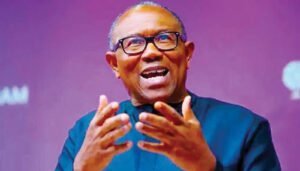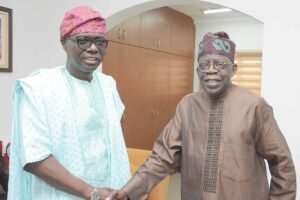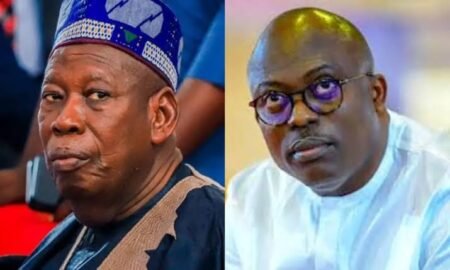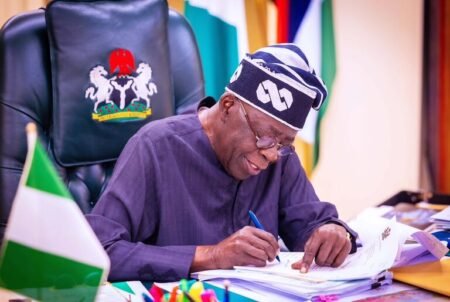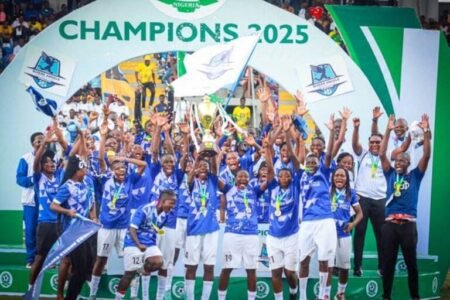Nigeria’s Super Eagles should be by far Africa’s most powerful football force. However, even the weakest clubs in Africa increasingly find the inconsistent team an easy opponent to face, especially on home territory in Nigeria.
Ordinary Guinea Bissau achieved the unimaginable and defeated the Super Eagles on their own turf.
Playing in Nigeria has become a nightmare for both Nigerian football fans and European players. For whatever reason, the majority of these foreign superstars consistently underperform.
The home field has increasingly become a neutral venue for the majority of their matches, leaving fans and players dissatisfied and disillusioned. Before matches, fans no longer know what to anticipate.
A new coach with an unknown pedigree; not enough time for players to assemble and train together to form a team; many new players introduced without a proper grounding in Nigerian football culture and philosophy; a new football administration that is still trying to find its feet months after its inauguration; a lack of funds to properly motivate the team; and so on are some of the frequently cited reasons.
In summary, there are as many reasons to express them as there are people claiming to be experts (including fans, journalists, and administrators).
The most essential reason, in my opinion, is the one that is least mentioned. It takes a unique kind of sight to see under the surface of conventional explanations for failure and discover the missing solution. That would need travelling back in time.
Nigeria used to have two of the top football stadiums in the world. Until 1995, Liberty Stadium in Ibadan and U.J Esuene Stadium in Calabar possessed playing surfaces equal to what Camp Nou provides for FC Barcelona, Emirates Stadium provides for Arsenal FC, and Stadio San Paolo (renamed Stadio Diego Armando Maradona) provides for Napoli FC.
Individually, the players in the current Super Eagles group, who are young and highly skilled, need a first-rate playing field in order to give their best since they have little or no time to practise together and be properly structured as a strong unit before matches. The terrible playing conditions in Nigeria have significantly reduced their efficacy.
At one stage in Nigerian football history, the Liberty Stadium in Ibadan was a tourist attraction for tourists and students. People would assemble on the terraces early in the morning or late at night to see the groundsmen’s caring routine on that sacred land.
Teams were only permitted to practise on the pitch two times each week. The remainder of the time, day and night, an ‘army’ of groundsmen over 20 strong nurtured the pitch like a newborn, working 24 hours a day, 7 days a week, all year round.
The imported ‘Bermuda grass’ was fed by a large water storage system linked to the town’s main waterworks.
It requires that kind of devotion and commitment to run a great football stadium.
In 1995, reportedly to prepare for hosting the World Youth Championship, the Nigerian government requested an Israeli construction firm to come to the nation and renovate chosen stadiums.
When the contractors arrived at Liberty Stadium and saw what was on the ground, they acknowledged that changing what they discovered on the ground would be a huge error. Even Israel lacked such a facility.
What they brought to replace the stadium’s playing field was inferior to what they encountered on the ground. Wicked sports officials at the time, blinded by money and stupidity, persisted in continuing the devastation.
The horrible crime was carried out, and it spread to Calabar, Kaduna, Enugu, and other cities.
Their work can still be spotted all around these stadiums, corpses of what was once wonderful and luscious grass turfs.
The shadow of those days continues to haunt the country’s football growth to this day.
In 2001, I invited two international experts from England to work on football fields. At the time, they were maintaining the grounds of Manchester City FC in England under Kevin Keegan. They came to Nigeria to inspect key stadium grounds and provide suggestions for restoration and upgrading to world-class standards.
We went to stadiums in Kaduna, Enugu, Abuja, Ibadan, and Lagos where soil samples were taken. I still have their expert advice for what needs to be done in my possession. The Minister and his officials in the Sports Ministry did not grasp or realise the severe gravity of the situation at the time and hence did nothing.
What the Super Eagles and Nigerians are going through now is a result of not doing anything about the state of the playing surfaces, not installing the right grass fields, drainage systems, and water systems, and not training groundsmen on modern technology of nursing real grass turfs.
When the 10-year Masterplan Committee for Nigerian football visited the MKO Abiola International Stadium in Abuja over a year ago, I brought this up to the departing Minister of Sport. I pushed the contractors in charge of the project to guarantee that the highest construction requirements were met since grass pitch management had failed multiple times in the nation and required extra-special care. They responded badly to my challenge, despite assuring the Minister that they understood what they were doing and would create a world-class grass pitch.
The rest, as they say, is history. It may be a good grass pitch by normal standards, but not having the greatest playing surfaces to aid our level of players in the Super Eagles today, who do not have the luxury of practising for lengthy periods of time on substandard grounds and becoming familiarized, is a huge setback for the squad and the nation.
Since the MKO Abiola National Stadium in Abuja was unveiled as the Super Eagles’ home field last year, it has been clear that one of the primary impediments to excellent performances by the national team on that pitch is the relatively poor quality of the playing surface.
What to do?
Outside of the new Uyo International Stadium, there are no decent enough grass fields in Nigeria to do respect to the Super Eagles’ talent and aptitude under Jose Paseiro. Due to the limited amount of time between matches, it makes sense for the Super Eagles to relocate their matches to Uyo.
Nigeria must return to the ‘architects’ of Liberty Stadium in Ibadan for sound advice if Abuja is to become a respectable home field.
One of them is still alive and well, living in Ibadan in semi-retirement. Debo Adeyele is his name. Nigeria must go for him and break the ‘curse’ of national team football in the country.
